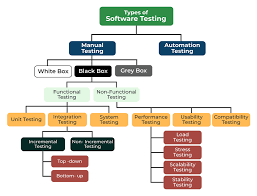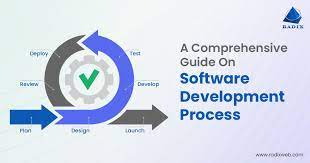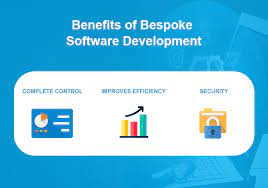Empowering Innovation: The Role of a Blockchain Software Development Company
The Rise of Blockchain Software Development Companies
Blockchain technology has revolutionized the way we perceive data security and transparency in various industries. As a result, the demand for blockchain software development companies has been on the rise.
These companies specialize in creating decentralized applications (dApps) and smart contracts that run on blockchain networks such as Ethereum, Hyperledger, and more. By leveraging the power of distributed ledger technology, they enable secure and tamper-proof transactions.
Services Offered by Blockchain Software Development Companies
Blockchain software development companies offer a wide range of services to cater to different needs:
- Smart Contract Development: Writing and deploying self-executing contracts that automatically enforce agreed-upon terms.
- dApp Development: Building decentralized applications that operate on blockchain networks, providing enhanced security and transparency.
- Blockchain Consulting: Advising businesses on how to integrate blockchain technology into their existing systems for improved efficiency.
- Tokenization: Creating digital tokens for various use cases such as crowdfunding, loyalty programs, or asset representation.
- Blockchain Integration: Integrating blockchain solutions with existing enterprise systems to streamline operations.
The Benefits of Working with a Blockchain Software Development Company
Collaborating with a reputable blockchain software development company offers several advantages:
- Data Security: Blockchain technology provides enhanced security through encryption and decentralization, reducing the risk of data breaches.
- Transparency: Transactions recorded on a blockchain are transparent and immutable, fostering trust among stakeholders.
- Efficiency: Smart contracts automate processes, reducing manual intervention and minimizing errors.
- Cutting-Edge Solutions: Blockchain software development companies stay updated with the latest trends and technologies in the industry, offering innovative solutions to clients.
In Conclusion
The emergence of blockchain technology has paved the way for new possibilities in software development. Blockchain software development companies play a crucial role in harnessing this potential and empowering businesses across various sectors. By embracing decentralized solutions, organizations can enhance security, transparency, and efficiency in their operations.
Top 7 FAQs About Blockchain Software Development Companies
- Who is the best blockchain development company for hire?
- Who is the leading blockchain development company?
- What is a blockchain software developer?
- Which is the best blockchain development company?
- How much do blockchain software developers make?
- What is a blockchain development company?
- What is blockchain software development?
Who is the best blockchain development company for hire?
When searching for the best blockchain development company to hire, it is essential to consider various factors such as expertise, experience, reputation, and project requirements. The ideal choice will depend on the specific needs of your project, whether it involves smart contract development, dApp creation, or blockchain integration. It is recommended to research and compare different companies based on their track record, client testimonials, and portfolio to find a reliable partner that aligns with your goals and vision for leveraging blockchain technology effectively.
Who is the leading blockchain development company?
When seeking the leading blockchain development company, it is essential to consider various factors such as expertise, track record, and client satisfaction. Several reputable companies have established themselves as industry leaders in blockchain software development, each offering unique strengths and capabilities. Conducting thorough research, reviewing case studies, and seeking recommendations from trusted sources can help identify the best fit for specific project requirements. Ultimately, the leading blockchain development company is one that aligns closely with the client’s vision and delivers innovative solutions tailored to their needs.
What is a blockchain software developer?
A blockchain software developer is a skilled professional who specializes in creating applications and solutions that leverage blockchain technology. These developers have expertise in programming languages such as Solidity, C++, and JavaScript, which are commonly used for building decentralized applications (dApps) and smart contracts on blockchain platforms like Ethereum and Hyperledger. They understand the principles of distributed ledger technology and cryptography to design secure, transparent, and tamper-proof systems. A blockchain software developer plays a crucial role in implementing innovative solutions that utilize the unique features of blockchain to revolutionize various industries.
Which is the best blockchain development company?
When seeking the best blockchain development company, it is essential to consider various factors such as expertise, experience, client reviews, and project portfolio. The ideal blockchain development company should have a proven track record of delivering high-quality solutions tailored to meet the unique needs of their clients. Additionally, assessing their proficiency in developing smart contracts, dApps, and integrating blockchain technology into existing systems can help determine the best fit for your specific requirements. Conducting thorough research and requesting consultations with multiple companies can aid in identifying the best blockchain development partner that aligns with your goals and vision.
How much do blockchain software developers make?
The salary range for blockchain software developers can vary based on factors such as experience, location, and the specific skills required for the job. On average, blockchain software developers can earn competitive salaries that often exceed those of traditional software developers. Entry-level positions may start around $60,000 to $80,000 per year, while experienced professionals with specialized blockchain expertise can command salaries well into six figures. The demand for skilled blockchain developers continues to grow as more industries adopt blockchain technology, making it a lucrative career path for those with the right skill set and experience.
What is a blockchain development company?
A blockchain development company is a specialized firm that focuses on creating decentralized applications (dApps), smart contracts, and other solutions that leverage blockchain technology. These companies have expertise in developing software that operates on blockchain networks, such as Ethereum and Hyperledger, to enable secure and transparent transactions. By utilizing distributed ledger technology, blockchain development companies help businesses integrate innovative solutions that enhance data security, immutability, and efficiency in various industries.
What is blockchain software development?
Blockchain software development involves creating applications and solutions that leverage blockchain technology to enable secure, transparent, and decentralized transactions. It entails designing and implementing smart contracts, decentralized applications (dApps), and other blockchain-based solutions that run on distributed ledger networks. Blockchain software developers use programming languages like Solidity, Java, or C++ to build these innovative solutions that offer enhanced data security, immutability, and trust in various industries. By harnessing the power of blockchain technology, companies can streamline their operations, reduce costs, and revolutionize traditional business processes for a more efficient and secure future.












